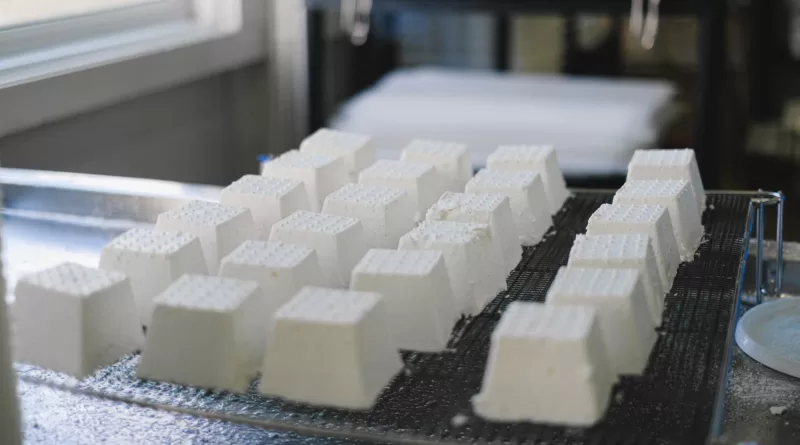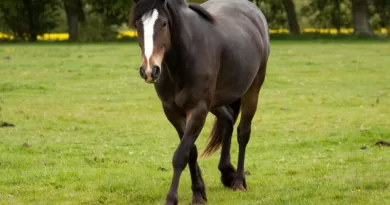Why Do Horses Like Sugar Cubes
The Appeal of Sugar Cubes for Horses
Horses have long been known to have a sweet tooth, which is why sugar cubes hold such a strong appeal for them. The simple act of receiving a sweet treat can be highly rewarding and enjoyable for these majestic creatures. Sugar cubes provide horses with a burst of sweetness that can instantly lift their spirits, making them a popular choice for trainers, owners, and riders when it comes to rewarding, bonding, or simply indulging their equine companions.
One reason why sugar cubes hold such allure for horses is their texture. The solid yet easily dissolvable nature of sugar cubes adds an extra level of engagement and satisfaction for horses. With a single bite, horses are able to experience the gratifying crunch of the cube before it quickly breaks down and releases its sugary goodness. This unique texture makes sugar cubes a highly desirable and accessible treat for horses, allowing them to experience a moment of pleasure and contentment whenever they are offered.
The Science Behind Horses’ Sweet Tooth
It’s no secret that horses have a strong affinity for sugar, but what exactly is the science behind their sweet tooth? One factor lies in their taste buds, which play a crucial role in determining their cravings. Horses have around 35 to 45 taste buds per square centimeter on their tongues, which is significantly fewer than humans but still enough to detect the sweetness of sugars present in their diet.
These taste buds contain special receptors that are sensitive to sweet tastes, allowing horses to easily identify and enjoy sugary substances. This preference for sweetness can be traced back to their evolutionary history. In the wild, horses would consume primarily plant-based diets, and their preference for sweetness helped them identify and consume energy-rich foods. This innate craving for sugar is likely an adaptive trait that has persisted in domesticated horses, making them naturally drawn to sugar cubes and other sugary treats. Understanding the science behind horses’ sweet tooth provides insight into their dietary preferences and sheds light on the reasons for their strong appeal to sugar cubes.
The Role of Taste Buds in Horses’ Sugar Cravings
Horses, much like humans, have taste buds that play a vital role in their sugar cravings. These taste buds are found primarily on the surface of the tongue and are responsible for detecting the different tastes that horses experience. However, unlike humans, horses have a limited number of taste buds, especially in comparison to their large size. This means that their ability to taste different flavors, including sweetness, may not be as heightened as our own.
Despite their relatively small number of taste buds, horses are particularly sensitive to the taste of sweetness. This is believed to be an evolutionary adaptation that helps them identify and seek out high-energy food sources in the wild. Sweetness is associated with carbohydrates, which provide horses with a quick source of energy. By recognizing and craving sugar, horses are naturally drawn to foods that can provide them with readily available fuel for their daily activities.
In conclusion, the role of taste buds in horses’ sugar cravings is significant. Horses’ taste buds allow them to detect the sweet flavor of sugar, which serves as an indicator of high-energy food sources. While their taste buds may not be as numerous as some other animals, horses’ ability to sense sweetness helps explain their natural attraction to sugar and their willingness to indulge in treats such as sugar cubes. Understanding this connection can be valuable in managing horses’ diets and preferences, ensuring their overall health and well-being.
The Historical Connection Between Horses and Sugar
Horses and sugar have had a long-standing connection throughout history. Dating back centuries, sugar has been used as a treat and a reward for horses. Ancient civilizations, such as the Romans and Persians, regarded sugar as a luxury and valued it for its sweet taste. Horses, being highly prized animals, were often treated to this indulgent and rare treat, symbolizing their esteemed status.
In the Middle Ages, sugar became more widely available in Europe and was used not only as a treat but also as a form of currency. It was highly prized and considered a luxury item, so offering sugar to horses was seen as a way to demonstrate wealth and prestige. Sugar cubes became a popular form of giving horses sugar due to their convenience and ease of use. Throughout history, the historical connection between horses and sugar has continued to evolve, becoming an integral part of training and rewarding these noble creatures.
The Impact of Sugar Cubes on Horses’ Behavior
Horses are known to have a sweet tooth, and sugar cubes have long been used as a treat for these majestic creatures. The impact of sugar cubes on horses’ behavior is a subject of interest and debate among horse owners and trainers. While some believe that these sweet treats can help in building a positive relationship with the horse and rewarding good behavior, others caution against overindulgence and the potential for behavioral issues.
Proponents of using sugar cubes as rewards argue that they can be an effective tool for training horses. The sugary taste and quick dissolvability of the cubes provide instant gratification for the horse, reinforcing desired behavior. Horses may become more responsive and willing to perform tasks when they know that a reward, such as a sugar cube, awaits them. However, it is important for horse owners and trainers to exercise moderation and use sugar cubes sparingly, as excessive consumption can lead to behavioral problems and potential health issues.
The Nutritional Value (or Lack Thereof) in Sugar Cubes for Horses
Sugar cubes may be a popular treat for horses, but when it comes to nutritional value, they come up short. These sweet treats are primarily composed of sugar (usually sucrose), which provides a quick burst of energy but lacks vital nutrients. While horses do require carbohydrates for energy, their nutritional needs extend beyond simple sugars.
In terms of vitamins, minerals, and other essential nutrients, sugar cubes offer little to no value. Horses need a well-balanced diet that includes a variety of forages, grains, and supplements to meet their nutritional requirements. Relying heavily on sugar cubes as a source of nourishment can lead to a deficit in important nutrients needed for optimal health and wellbeing. Therefore, it is crucial for horse owners to consider the nutritional content of their equine companions’ diets and opt for more nutrient-dense alternatives.
The Relationship Between Horses’ Digestive System and Sugar Consumption
Horses have a unique digestive system that is adapted for grazing on fibrous plant materials. They possess a large, complex hindgut, which includes the cecum and colon, that plays a crucial role in breaking down and fermenting cellulose. The digestive process in horses involves a series of enzymatic reactions and microorganism activity, resulting in the production of volatile fatty acids that provide a significant source of energy.
It is important to consider this intricate digestive system when discussing sugar consumption in horses. While horses naturally have a preference for sweet tastes, their digestive system is not designed to handle high levels of sugar. Excessive consumption of sugar can disrupt the delicate balance of microorganisms in the hindgut, leading to digestive issues such as colic or laminitis. Furthermore, the rapid fermentation of sugars in the hindgut can cause an increase in lactic acid production, resulting in an acidic environment that can be harmful to the horse’s overall health.
The Training Benefits of Using Sugar Cubes with Horses
Sugar cubes can be a useful tool in horse training due to their palatability and convenience. Horses are naturally drawn to the sweet taste of sugar, making it an enticing reward during training sessions. The small size and compact shape of sugar cubes also make them easy to handle and administer to the horses. This simplicity can be particularly helpful when training horses for specific behaviors or commands, as trainers can quickly and efficiently reinforce positive actions with a small, tasty treat.
Moreover, the immediate gratification provided by sugar cubes can help reinforce positive associations between desired behaviors and rewards. When a horse performs a desired action, such as responding to a cue or completing a task correctly, rewarding them with a sugar cube can reinforce the behavior and promote further learning. In this way, sugar cubes can not only serve as a tangible positive reinforcement but also as a motivational tool, encouraging horses to continue performing desired actions in order to receive the sweet reward.
The Potential Risks and Drawbacks of Feeding Sugar Cubes to Horses
Some horse owners may be tempted to treat their equine companions with sugar cubes as a reward or a way to bond with them. However, it is important to be aware of the potential risks and drawbacks associated with feeding sugar cubes to horses. One of the main concerns is the adverse impact on their teeth. Horses have teeth that are designed for grazing on roughage, not for consuming concentrated sources of sugar. The constant chewing and grinding of sugar cubes can lead to dental problems such as cavities, cracked teeth, and uneven wear. Additionally, excess sugar consumption can contribute to weight gain and increase the risk of developing metabolic disorders, such as insulin resistance and laminitis, which can have serious consequences for the horse’s overall health and well-being.
The Alternatives to Sugar Cubes for Treating Horses
When it comes to treating horses, there are several alternatives to sugar cubes that can be just as effective. One commonly used option is apples, which provide a natural sweetness that horses enjoy. Not only do apples contain essential vitamins and minerals, but they also offer a higher nutritional value compared to sugar cubes. Another alternative is carrots, which are not only a low-calorie option but also rich in vitamins and fiber. Horses find the crunchiness of carrots pleasing, making them a great alternative to sugar cubes for training or as treats. Furthermore, molasses can be used as a sweetener that horses find appealing. Although it contains sugar, molasses is less concentrated and can be easily diluted in water or mixed with other feeds to reduce overall sugar intake.
Why are sugar cubes appealing to horses?
Sugar cubes are appealing to horses because of their natural sweet tooth. Horses have taste buds that are highly sensitive to sweetness, making sugar cubes a tasty treat for them.
What is the science behind horses’ sweet tooth?
Horses have evolved to crave sweet tastes due to their herbivorous diet. In the wild, horses would consume sweet grasses and fruits, which provided a quick source of energy. This preference for sweetness has been passed down through generations.
How do taste buds play a role in horses’ sugar cravings?
Horses have taste buds on their tongues and inside their mouths that are specifically tuned to detect sweet flavors. When they consume sugar cubes, these taste buds send signals to the brain, creating a pleasurable experience for the horse.
Is there a historical connection between horses and sugar?
Yes, there is a historical connection between horses and sugar. Throughout history, sugar has been used as a treat and reward for horses, dating back to ancient times. This tradition continues today, with sugar cubes being a popular choice for horse owners.
How do sugar cubes impact horses’ behavior?
Sugar cubes can have an impact on horses’ behavior by acting as a training aid or reward. The sweet taste can motivate horses to perform desired behaviors and reinforce positive training experiences.
What is the nutritional value of sugar cubes for horses?
Sugar cubes have little to no nutritional value for horses. They are primarily composed of sucrose, which provides a quick source of energy but lacks essential nutrients. Overfeeding sugar cubes can contribute to weight gain and dental issues.
How does sugar consumption affect horses’ digestive system?
Horses have a sensitive digestive system, and excessive sugar consumption can disrupt the balance of gut bacteria and lead to digestive issues such as colic or laminitis. It is important to moderate sugar intake and consider alternatives for treating horses.
What are the training benefits of using sugar cubes with horses?
Using sugar cubes as a training aid can be beneficial because horses are naturally attracted to the sweet taste. This can help motivate them to learn new behaviors, reinforce positive training experiences, and strengthen the bond between horse and handler.
What are the potential risks and drawbacks of feeding sugar cubes to horses?
Feeding sugar cubes to horses in excess can lead to weight gain, dental problems, and digestive issues. Additionally, relying too heavily on sugar as a training reward can create a dependency and potentially lead to behavioral problems.
What are the alternatives to sugar cubes for treating horses?
There are several alternatives to sugar cubes for treating horses, including carrots, apples, bananas, and commercial horse treats specifically designed to provide a balanced nutritional profile. These options can offer a healthier and more nutritious alternative to sugar cubes.




